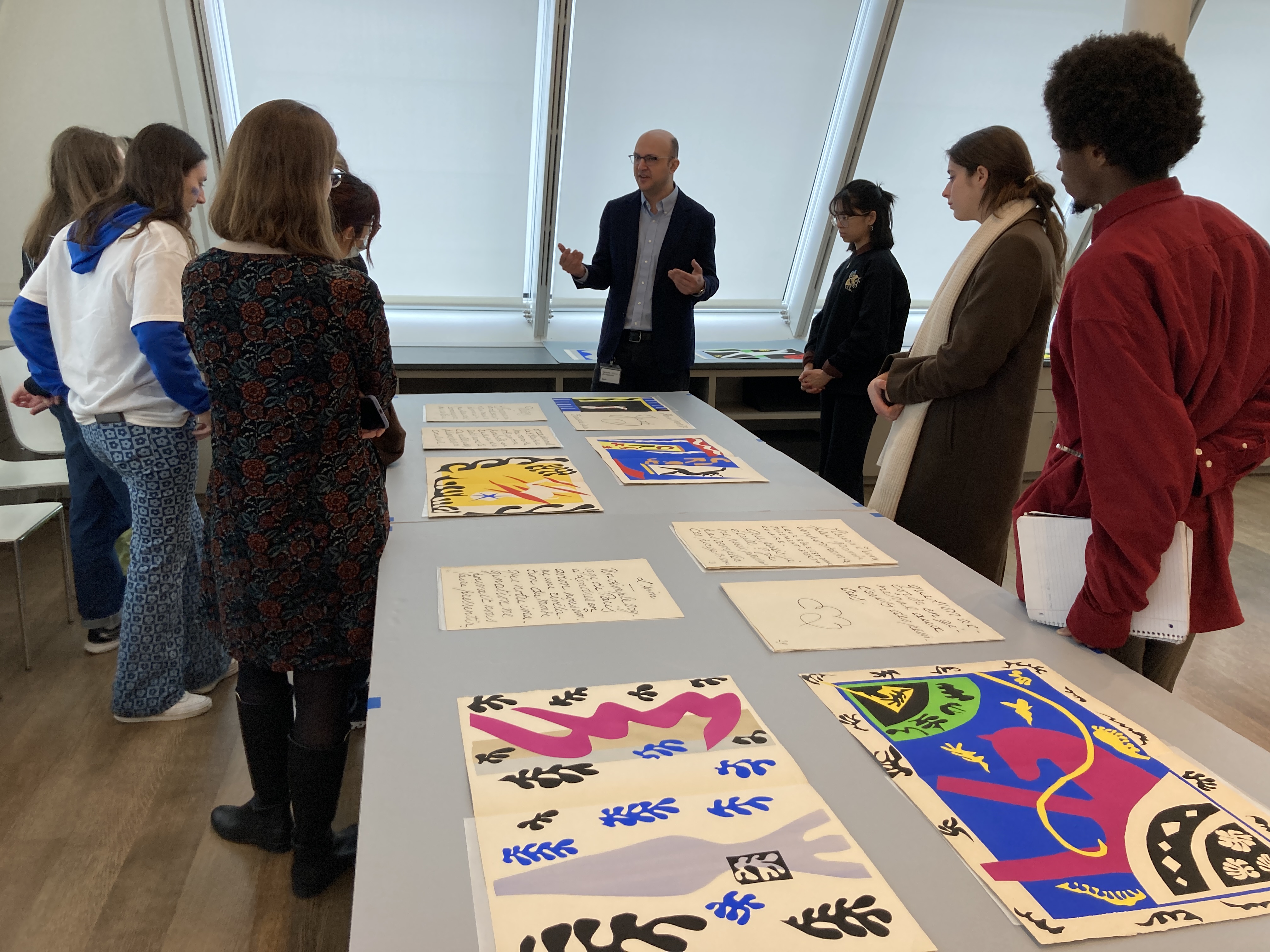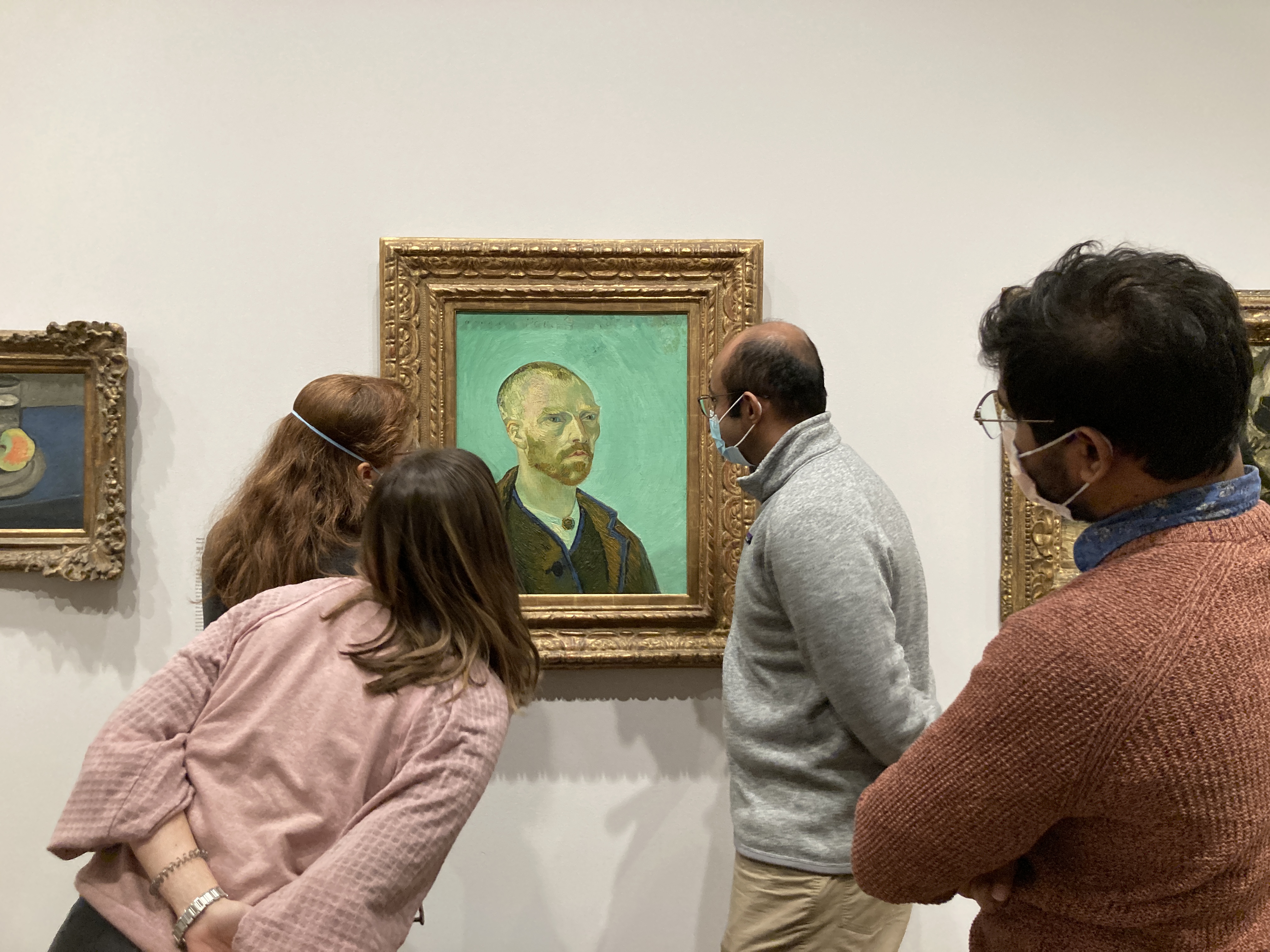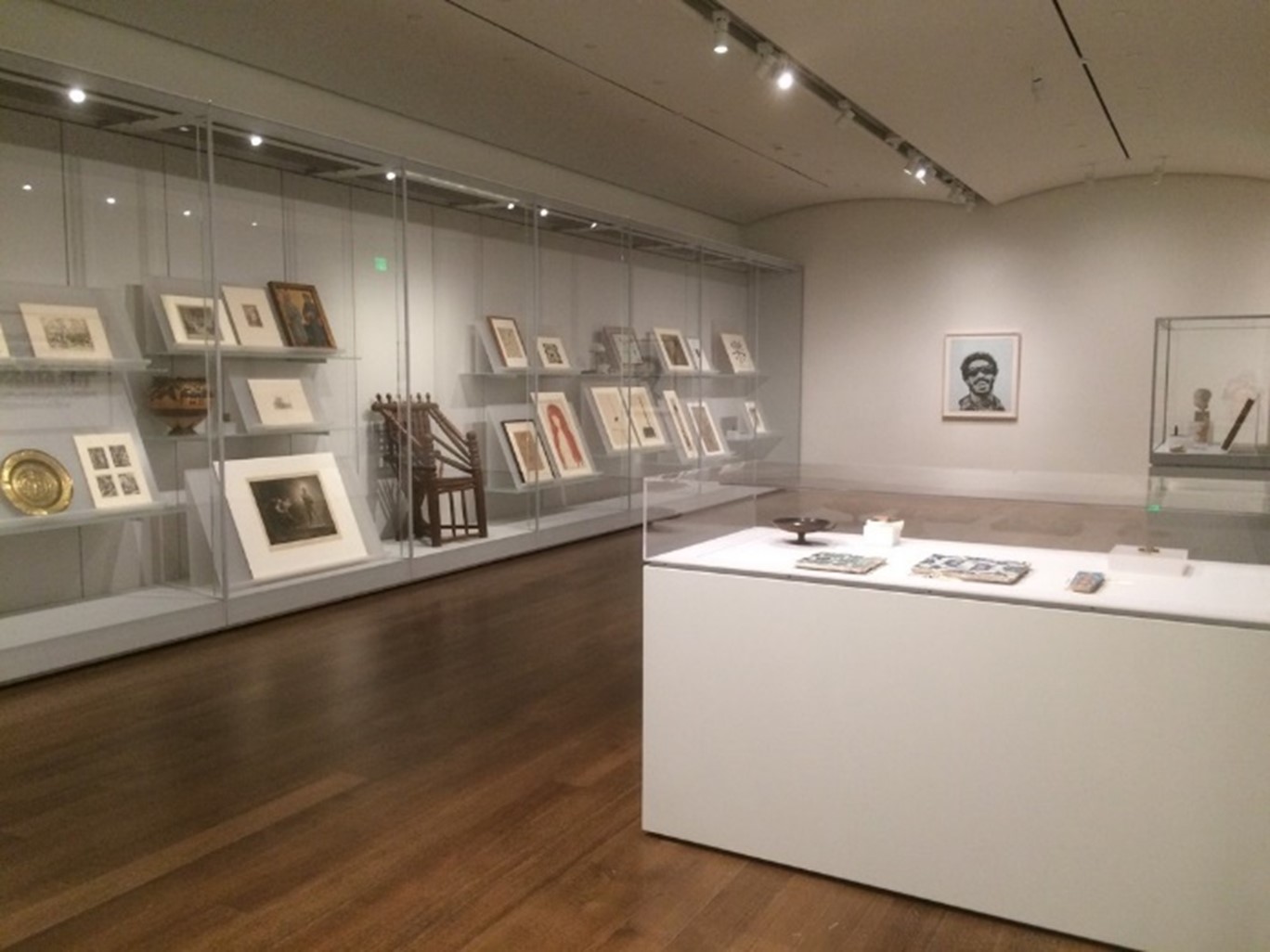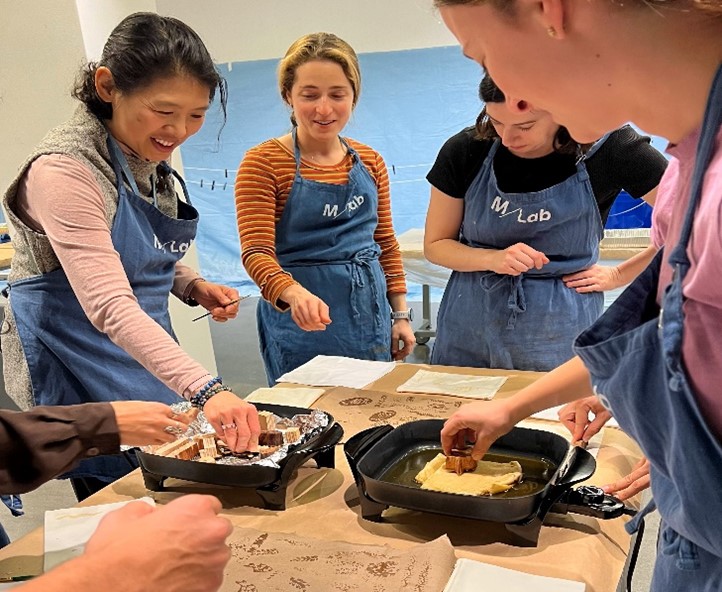Academic and Public Programs
Faculty Resources
With collections that span millennia, media, and cultures, the Harvard Art Museums are an extraordinary resource for Harvard and other local universities. Our collections, Art Study Center, University Galleries, and other purpose-built learning spaces provide powerful opportunities for faculty and students to consider original works of art as engines that drive intellectual inquiry. The museums are, in essence, one big classroom, where students are invited to engage with the collections in ways that enrich and inspire their studies.

Art Study Center
Designed to offer an environment for both small-class and individual study, the Art Study Center provides teaching, learning, and research opportunities through close examination of original works of art. Comprised of three study rooms and two seminar rooms on Level 4, as well as spaces at the museums’ Somerville Research Facility, the Art Study Center provides access to thousands of works of art across all media during weekdays between 10am and 5pm. Faculty are invited to develop class sessions for up to 20 students. Museums staff are available to assist with object selection. To schedule a visit, please fill out a request form.

Curricular Support
Each semester, approximately 100 courses and programs from more than 30 departments and centers collaborate with the Harvard Art Museums. The museum setting promotes active learning and interdisciplinary thinking, challenging students to make evidence-based interpretations and find connections to their topic of study across time and place. Our team of educators, curators, conservators, scientists, and other staff consult with faculty and teaching fellows from all disciplines to explore how the collections can support course goals, help students build skills, and foster students’ museum literacy and museum-going identities. We are happy to help you identify relevant works of art and close-looking strategies for your course topic, facilitate gallery conversations during your visit, lead materials-based investigations, consult on assignment design, and share research materials such as collections data, object files, and archival documents.
For self-guided class visits, please email am_dapp@harvard.edu. In your message, please share your course code and title, the date and time when you wish to visit, the galleries you wish to use, and the number of students in your course. Please note that we have an 18-person gallery capacity; courses with more than 18 students will need to split into smaller groups to enter the galleries. Self-guided visits are typically scheduled at least four weeks in advance. For Harvard course visits taking place on a Monday or in the window of 9-10am, we require at least two weeks’ notice. At this time, we cannot accommodate Monday or early morning visits for non-Harvard courses.
For Harvard curricular support, start here by contacting:
Jen Thum
Associate Director of Academic Engagement and Campus Partnerships and Research Curator
jennifer_thum@harvard.edu
In your message, please share your course code and title, as well as some convenient times for an initial discussion. If possible, please be in touch several weeks prior to the earliest date when you might like to visit the museums.
Objects Used for Past Courses
Faculty who are interested in teaching with our collections can browse the objects used by a selection of past Harvard courses by visiting this page. Click on the course title to view its description and the list of works the faculty member selected. Please note that some lists include works that were used across multiple iterations of a course.

University Study Gallery
Located on Level 3, the University Study Gallery supports the coursework of numerous Harvard departments and schools. It is a gallery classroom dedicated to the installation of original works of art from the museums’ collections that serve as primary source materials for interdisciplinary study. Installations (which typically include around eight to ten objects) might relate to general themes of a course, a particular segment, or serve as the subject of an assignment. Class sessions (for up to 18 students) can be held in the gallery or students can visit on their own. If you are interested in developing a course-related installation during the academic year, please contact Laura Muir.
For the University Study Gallery, please contact:
Laura Muir
Director of Academic and Public Programs
and Louis Miller Thayer Research Curator
laura_muir@harvard.edu

Materials Lab
The Materials Lab is an environment for art making as a means of learning and knowing. Using the power of art making and close looking to model interdisciplinary inquiry and critical thinking, the M/Lab provides unparalleled opportunities for students and faculty to take part in hands-on art making experiences that both complement and extend beyond academic boundaries. Through interaction with artists, scholars, conservators, and other experts, programs delve into how people transform materials into art and how artworks may in turn be altered over time. We welcome collaborations with faculty from across the university to co-design class visits to the M/Lab.
Examples of workshops developed in support of past courses include indigo dyeing for the Art of Monsoon Asia course, image transfer technologies and oil painting for the Changing Perspectives: The Science of Optics in the Visual Arts first-year seminar, and various forms of sculpture for the Exploring Contemporary art in Early Childhood Education course.
To explore curricular possibilities with the Materials Lab, please contact:
Francesca Bewer
Research Curator for Conservation and Technical Studies Programs
francesca_bewer@harvard.edu
Special Topic Resources
The following selections of objects from the museums’ collections were compiled as a resource for instructors and students exploring special topics:
• Climate Change in the Collections
• COVID in the Collections (objects related to diseases and their impact on society)
• Latinx Experience in the Collections
• African American History in the Collections
• Native American Experience in the Collections
Curatorial File Access
Please see this document for how to view curatorial files.
Digital Resources
• Browse our collections—search, find information about objects, and download images—at harvardartmuseums.org/collections.
• Visit our Special Collections page for digital resources on select topics in our collections, from ancient coins to the Bauhaus.
• Instructors and students can create their own digital “collections” of works that spark their interest directly on our website. Watch our video tutorial to learn how.
• Check out our API for programmatic and algorithmic access to the museums’ database.
• If an object does not have high-resolution images available on our website (due to copyright restrictions, for example), they may be requested for educational purposes using this form. Please allow 2-3 weeks turnaround time.
K-12 Class Visits
Self-guided K-12 class visits to the museums can be arranged through Visitor Services. Please see the Group Visits page.
